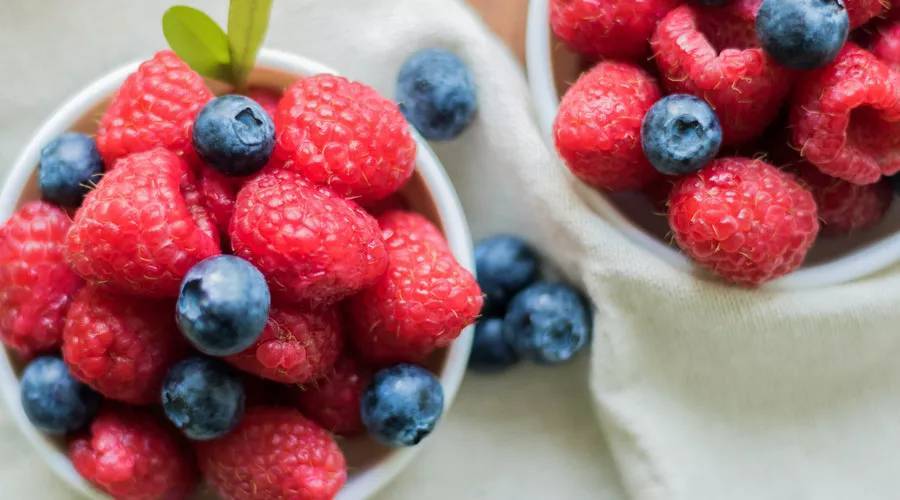Is blueberry the fruit of the year?
Shenzhen Translation Bureau is its compilation team, focusing on technology, business, workplace, life and other fields, focusing on introducing new foreign technologies, new perspectives and new trends.
Editor’s note: Blueberries are a berry. We generally know that one of the benefits of blueberries is their antioxidant properties. Two recently published literature reviews suggest that blueberries may also be of great benefit to the brain, improving memory and mood. Colleagues working overtime at the end of the year, and students preparing for the exam at the end of the period, might as well try to eat blueberries during the break to “refresh your brain”. This article is translated from Medium, author Dalmeet Singh Chawla, the original title is “What to Know About the Connection Between Blueberries and Memory”, I hope to inspire you.

Scientists are interested in blueberries. Blueberry is a kind of berry (Berry). Berries are a collective name for a group of juicy fleshy single fruits. They are formed by one or more carpels and contain one or more seeds. The nutritional composition of berries varies from fruit to fruit. The outer peel is one to several layers of thin-walled cells, and the mesocarp and endocarp are generally difficult to distinguish. The mesocarp and endocarp are fleshy and rich in juice. Any form of small fleshy fruit, the outer layers of the peel are thin-walled cells, and the remaining parts are sepals of fleshy juicy berries that are connected to the pedicle. Berries are generally developed from multiple carpels and connate pistils Eaters, also commonly known as Berry. There are many types of berry fruit trees, such as grapes, kiwi, raspberries, gooseberries, bilberries, mulberries, figs, pomegranates, carambola, carambola, papaya, guava, rose apple, blueberry, passion fruit, etc. Although raspberry, blackberry and strawberry have berry in their English names, they are not berries but aggregated fruits.
Research in humans has shown that berry fruits can lower blood pressure and help children perform better on cognitive tests. Studies in mice have shown that berries can improve memory and help animals maintain balance. It seems that a small berry is great for the brain.
Two recent systematic literature reviews support this claim. Both literature reviews have shown that eating blueberries can improve overall cognitive ability and help improve mood.
Wolfgang ·Wolfgang Marx is a nutrition researcher at Deakin University in Geelong, Australia, and co-author of a literature review published in the journal Brain, Behavior, and Immunity. He said blueberries are receiving a lot of research because they are rich in micronutrients. Epidemiological studies over the past decade have found that eating flavonoid-rich foods can improve cognitive decline.
A review of 12 related studies in this literature review that explored the effects of blueberry eating on short-term, long-term, and spatial memory. They found that in these studies, whether men or women consumed blueberries, multiple trials showed significant improvements in cognitive performance indicators. Another literature review, published in June by another research team, reviewed 11 studies examining the link between blueberries and cognitive ability and found that people who eat blueberries performed better on memory tests.
So, can blueberries be named the fruit of the year?
Don’t worry.
While this research supports the well-known fact that berries are a healthy food, it doesn’t mean that everyone who wants to improve their memory should consume large amounts of berries. The studies reviewed by Marx and his team were done in small experiments, and these experiments were performed in a short period of time. Moreover, each study uses different methods and experimental protocols to measure cognitive abilities, which makes comparisons different between different experiments.
For example, some studies used freeze-dried blueberries in experiments, and some studies used whole blueberries or concentrated blueberries. Research subjects also differ in age. Although most of the experimental subjects were children, there were also young or elderly people who had cognitive impairments and some without cognitive impairments.
Colorado State University researchers Christopher Brydges and Laura Gaeta report to Brain, Behavior and Immunity (Brain,Behavior, and Immunity) submitted a research report on blueberries. In their report, they point out that whether blueberries are good for the brain and mood is still uncertain. They wrote: “Based on the current state of research, researchers should not jump to conclusions about the effects of blueberries on cognition and emotion.”
Even though berries are really good for the brain, it’s unclear how effective they are. Brydges and Gaeta told us: “The proportion of studies that think blueberries have an effect on the brain and emotions is only statistically significant.”
Marx agrees with this critical point and said that the research on blueberries is still in its early stages, so it is too early to medically recommend people to eat blueberries to improve memory. “This is indeed an interesting area of research, but we need some appropriate, long-term, larger-scale studies to prove whether blueberries really have an effect on our brains and emotions.”
If blueberries are really good for the brain, it is most likely because they have antioxidant and anti-oxidant properties Inflammation characteristics. Suppressing inflammation may be good for brain cell health, while antioxidants may help control other health issues, such as high blood pressure, which is also good for brain health.
Although the relationship between blueberries and memory improvement needs further study, Marx still suggests that people should eat blueberries often, after all, blueberries are a healthy fruit. So far, most studies have shown that two blueberries per day may be ideal. But he noted that polyphenols can also be obtained from other fruits, such as orange juice, which has also been shown to help lower blood pressure by dilating blood vessels. Black tea, green tea, and extra virgin olive oil are also rich in polyphenols. “Even if you don’t like blueberries, you should try to eat something rich in polyphenols.”
Translator: Jane
Recommended reading: Scientist suggestion: Instead of trying to fall asleep, it is better to be “quiet and quiet”